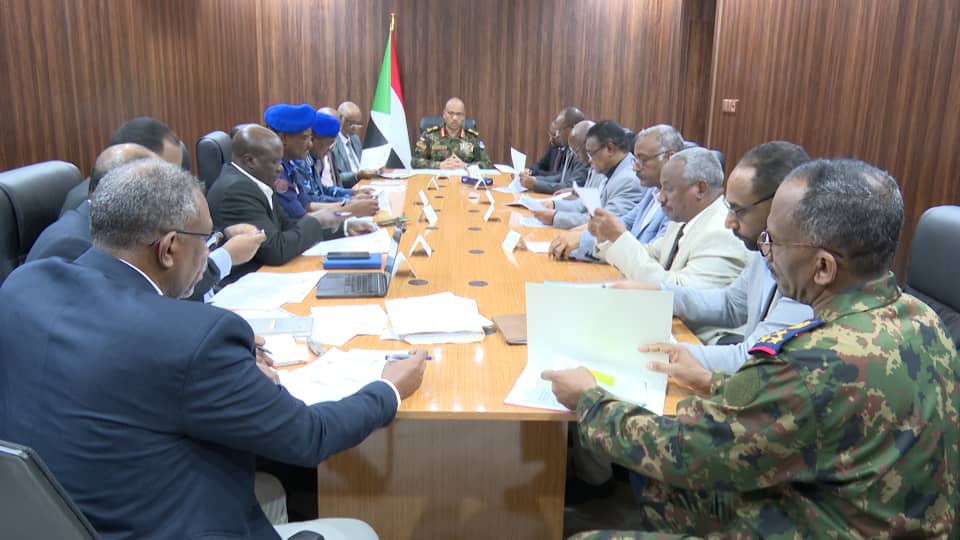
Sudanese authorities address currency replacement efforts, stressing vigilance against counterfeit circulation amid economic turmoil. (Photo/ Suna)
Port Sudan – The Sudanese Supreme Committee for the Issuance and Exchange of Currency convened today under the leadership of Lieutenant General Engineer Ibrahim Jaber, a member of the Sovereignty Council and chairman of the committee.
The meeting, according to SUNA’s report, assessed technical reports on the currency replacement initiative, reviewed the movement of funds across targeted states, and evaluated citizens’ participation and response to the program.
Speaking to reporters, Khaled Al-Aiser, Minister of Culture and Information and government spokesperson, confirmed the seizure of counterfeit currency in various regions.
Al-Aiser praised the security committees for their vigilant monitoring of monetary activities, highlighting their efficiency in curbing fraudulent operations. “The security services are fully prepared to oversee this process and ensure its success,” he added, urging citizens to remain cautious and avoid dealings in fake currencies.
Al-Aiser expressed gratitude to the public, banking staff, and security forces for their collaborative role, stating, “The overwhelming response by citizens reflects a deep national awareness and unity in addressing key economic issues.”
Sudan Faces Political and Economic Challenges
Sudan is grappling with significant instability following the outbreak of conflict between the Sudanese Armed Forces (SAF) and the Rapid Support Forces (RSF) in April 2023. The ongoing clashes have displaced over 8.6 million people, creating the world’s largest displacement crisis, with severe humanitarian implications.
Economic collapse remains a pressing issue; the country’s GDP contracted by 12% in 2023, and projections indicate an 18% decline in 2024 due to halted production and destruction of infrastructure. Food insecurity has reached alarming levels, with over 17 million people facing acute hunger, exacerbating Sudan’s fragile situation.
Also Read: Turkey Brokers Agreement to End Ethiopia-Somalia Feud
The expansion of conflict into central and eastern Sudan, key agricultural regions, has worsened food shortages. Additionally, public services such as healthcare and education are severely disrupted, with 65% of the population lacking access to essential medical care.






